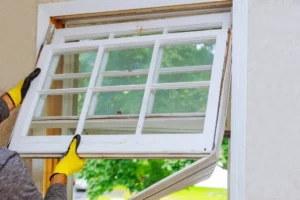How do I choose a contractor?
Ideally, you should build a relationship with your contractor that is similar to the one you have with your real estate agent. It should be based on trust and make you want to return to them for future needs. Your contractor should be very good at listening and communicating. You want your contractor to “get” what you want for your home and to keep in touch with you every step of the process. Do your research by checking out the reputation of contractors, speaking with other clients and looking at their previous work before making your choice.
How much will my project be?
The answer will depend on the scope of the project. However, to ensure that your contractor is able to provide you with the best estimate, it’s important to write down all the details of your plan. Renovations often take longer and cost more than expected. This is because homeowners make changes or additions along the way or don’t realize they may need to reroute outlets and electricity if they move a wall. You have to consider each item individually.
How long will it take to finish the renovations?
This depends on how much work is done and how many changes you make along the way. The more planning you do before you start, the better estimate you can get from your contractor.
How do I prioritize my projects?
You may want to plan your project in phases if you live in your home while renovations are taking place. This will allow you to live in some rooms and work in others. You may need to phase projects depending on the cost and available funds.
Where do I start?
Start by doing a lot of online research. Start a look book for your home. You can do this in a notebook, or online. Collect pictures of the finishes and looks you like. Visit kitchen, bathroom, flooring, appliance and flooring showrooms, and talk to different contractors to get ideas and pricing.
Do I need permits?
Your contractor will be able to tell you which projects require permits. Be sure to follow all permitting regulations. Failure to do so can lead to further work being required.
How much will renovating my home increase its value?
Homeowners often believe that improvements will increase the value of their home. However, sometimes, what they consider improvements can be liabilities for future buyers. Don’t spend so much on your house that it is more expensive than other houses in the neighborhood. Be careful not to add style preferences that are difficult to change, such as ornamental fixtures, radical architectural features, or unusual landscaping.
How do I pay for renovations
If you can afford to pay cash for your renovations then that is a great option. If you don’t have the cash, you could consider a home-equity loan with a manageable payment or a revolving credit line that you can use to pay for renovations and any emergencies that may come up later.


Leave a Reply